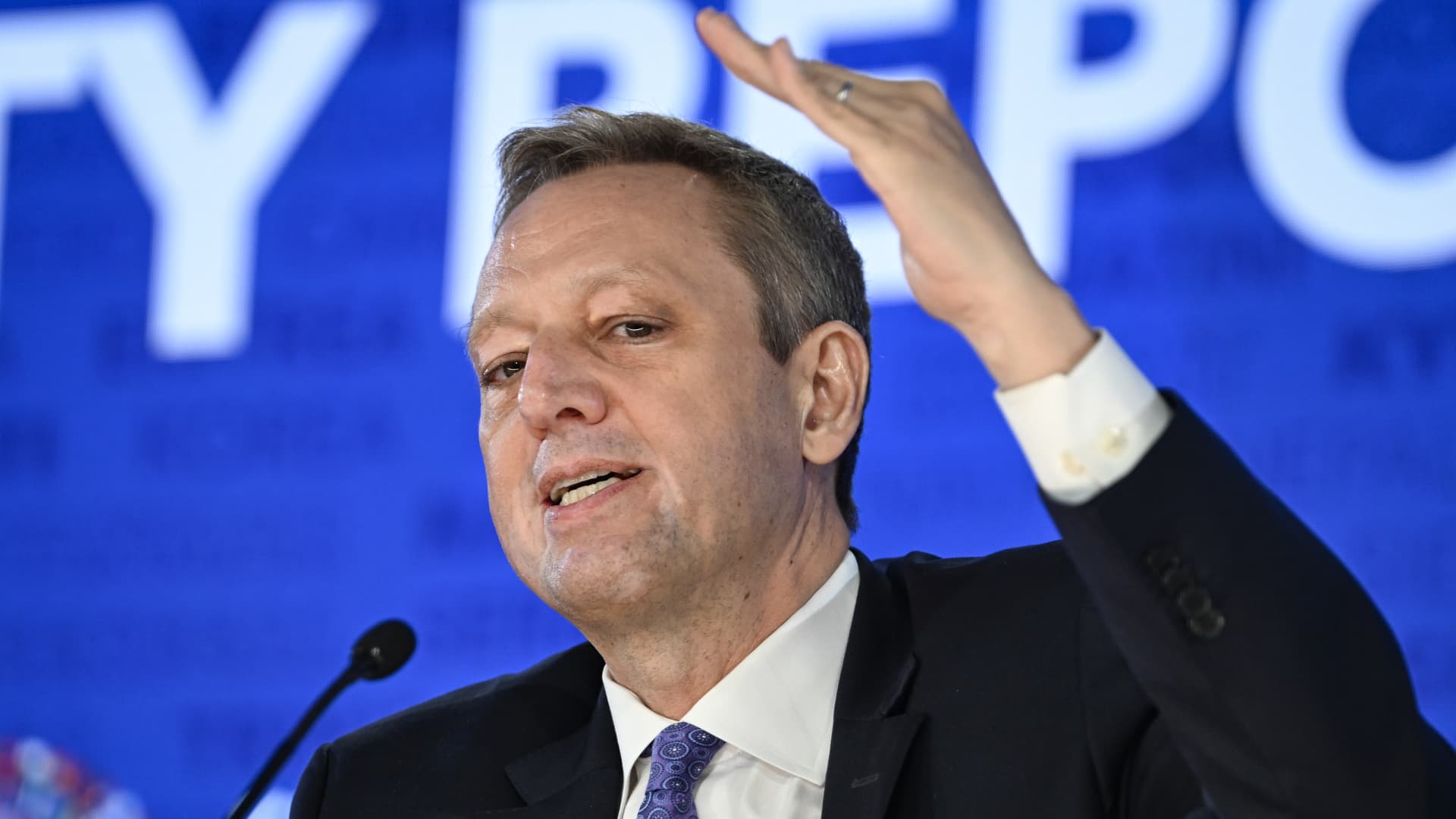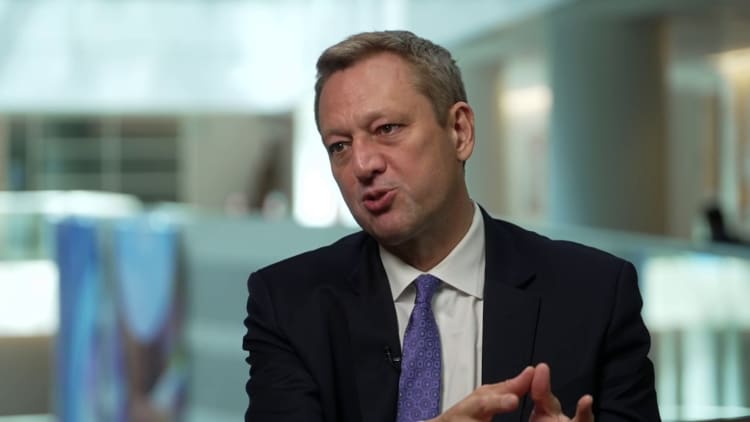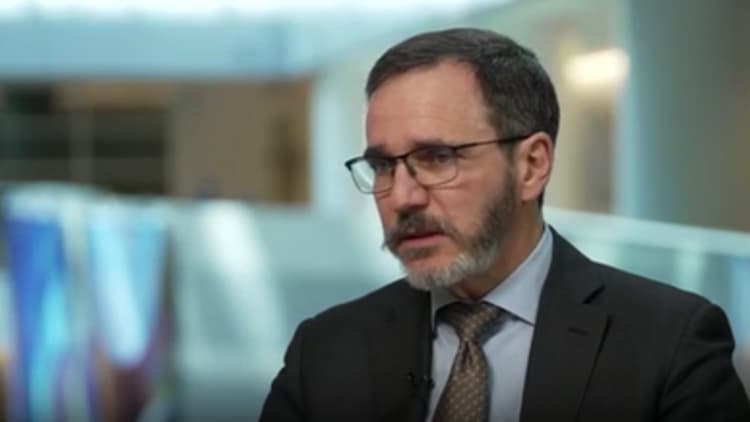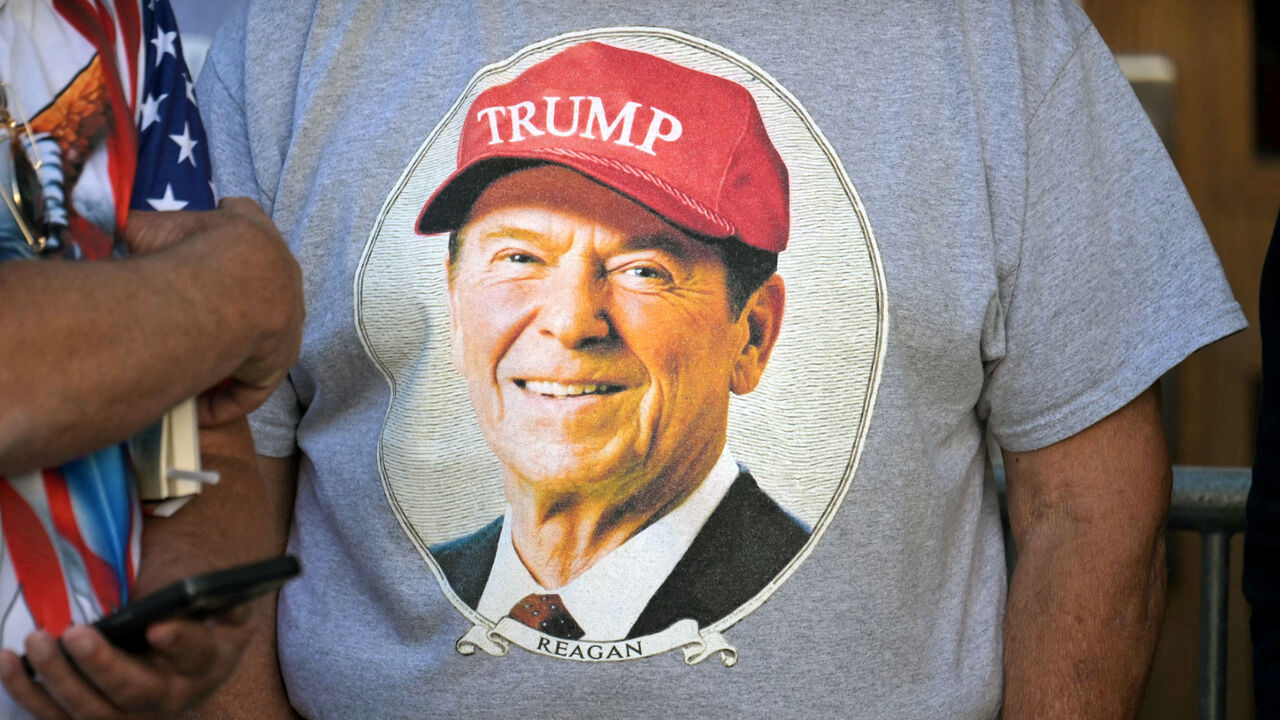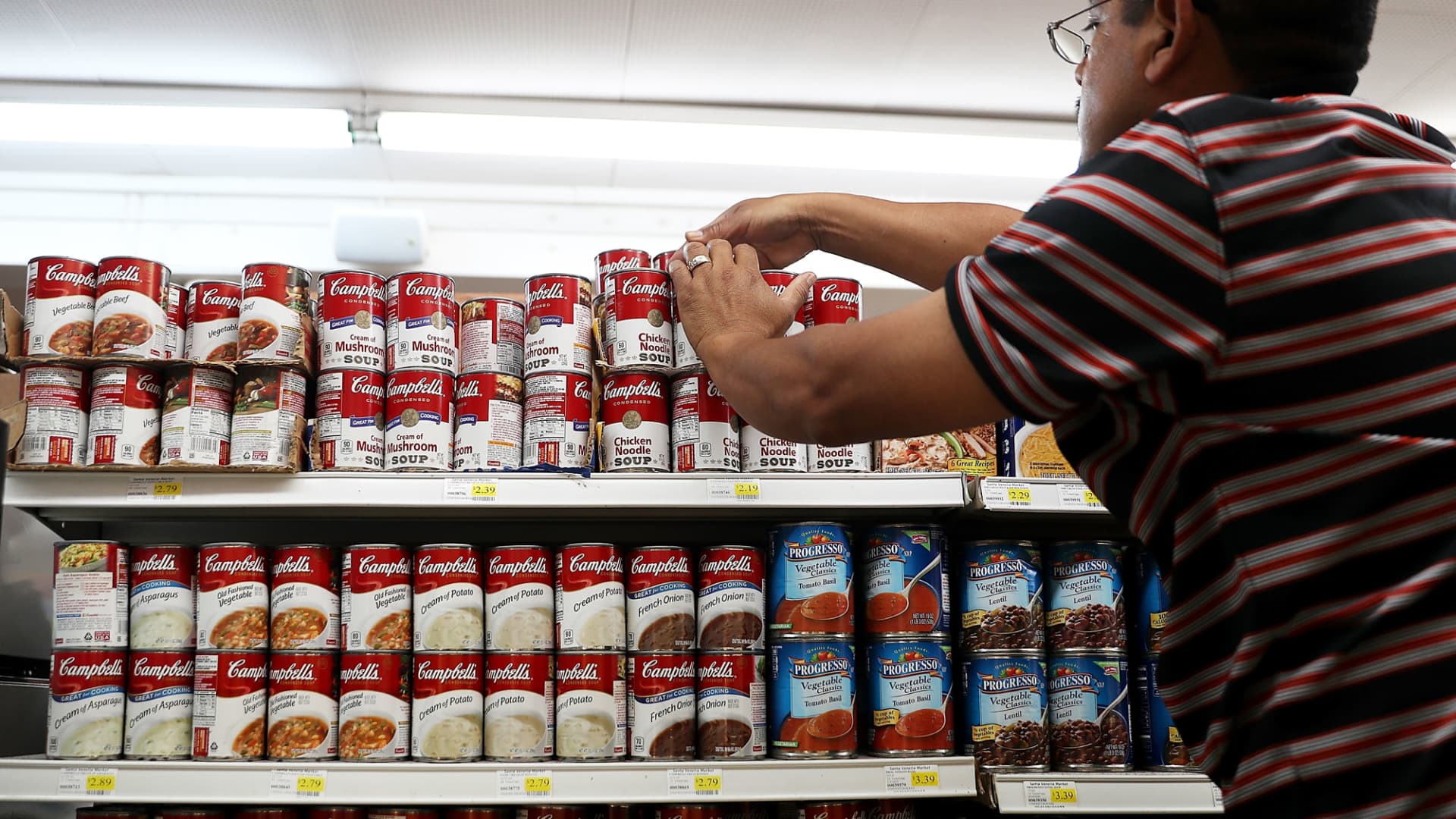Financial Counsellor and Director of the Monetary and Capital Markets Department Tobias Adrian hold the press briefing of the Global Financial Stability Report at the International Monetary Fund during the 2024 Spring Meetings of the International Monetary Fund (IMF) and the World Bank Group in Washington DC, United States on April 16, 2024.
Anadolu | Anadolu | Getty Images
High corporate valuations could pose a significant risk to financial stability as market optimism becomes untethered from fundamentals, the IMF’s director of the Monetary and Capital Markets Department said Tuesday.
Financial markets have been on a tear for much of this year, buoyed by falling inflation and hopes of forthcoming interest rate cuts. But that “optimism” has stretched company valuations to a point where that could become vulnerable to an economic shock, Tobias Adrian said.
“We do worry in some segments where valuations have become quite stretched,” Adrian told CNBC’s Karen Tso Tuesday.
“It was led by tech last year, but at this point, it’s really across the board that we have seen a run up in valuations. There’s always this question, if a negative shock were to hit to what extent do we see a readjustment of pricing,” he said.
Adrian, who was speaking on the side lines of the IMF’s Spring Meeting in Washington, said that credit markets were a particular area of concern.
“I would point to credit markets, where spreads are very tight even though borrower fundamentals are deteriorating, at least in some segments,” he said.
“Even riskier borrowers are able to issue new debt, and that’s at very favourable prices,” he added.
Real estate risks
The IMF’s financing concerns also extend to the property market, and chiefly commercial real estate, which Adrian said had grown “somewhat worrisome.”
Medium and small-sized lenders in particular could be vulnerable to commercial real estate shocks as the sector has come under pressure from a shift to remote work and online shopping, he said.
“There’s really a nexus between exposure of some banks, particularly middle sized and smaller banks, to commercial real estate that also tend to have [a] fragile funding base. Sort of the combination of having a risk exposure to commercial real estate, and this fragile funding that could in some scenarios, reignite some instability,” Adrian said.
The IMF on Tuesday released its World Economic Outlook, in which it upgraded its global growth forecast slightly, saying the economy had proven “surprisingly resilient.”
It now sees global growth at 3.2% in 2024, however it noted that downside risks remain, including regarding inflation and the increasingly uncertain path forward for interest rates.
Federal Reserve Chair Jerome Powell said Tuesday that the U.S. economy has not seen inflation come back to target, adding to the unlikelihood that it will cut rates in the near-term.
“We do see risks in terms of inflation persistence. Some of that has realized already, but of course we could see further surprises,” Adrian said.
“We’ve [cited] risks as broadly balanced around the globe. But in some countries, there’s a little bit more upside and others a little bit more downside. So certainly, interest rate risk is a key factor we’re looking at,” he added.

 Personal Finance1 week ago
Personal Finance1 week ago
 Blog Post1 week ago
Blog Post1 week ago
 Economics5 days ago
Economics5 days ago
 Economics1 week ago
Economics1 week ago
 Economics1 week ago
Economics1 week ago
 Personal Finance1 week ago
Personal Finance1 week ago
 Economics6 days ago
Economics6 days ago
 Accounting5 days ago
Accounting5 days ago
